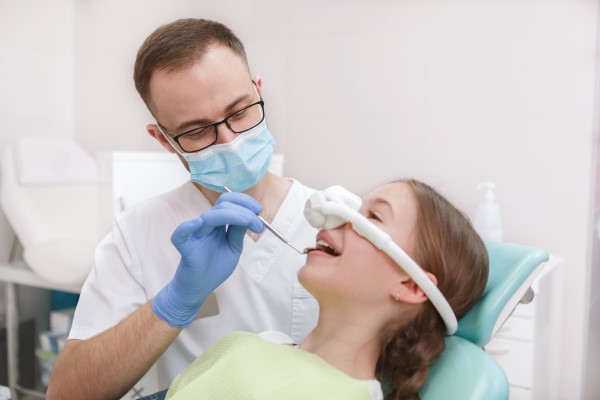Answering Common Questions About Sedation Dentistry

Sedation dentistry offers a safe and effective solution for children who experience anxiety, fear, or difficulty remaining still during dental procedures. By creating a calm and stress-free environment, sedation dentistry allows pediatric dentists to complete necessary treatments while ensuring children remain comfortable. Understanding the types, benefits, and safety measures can help parents make informed decisions about their child's dental care. Here are some of the most frequently asked questions regarding sedation dentistry.
What is sedation dentistry?
Sedation dentistry refers to using medication to help patients relax during dental procedures. In pediatric dentistry, dentists commonly use this approach for children with dental anxiety, special healthcare needs, or who require extensive treatment in a single visit. It helps reduce movement, minimize fear, and create a more positive dental experience.
There are several levels of sedation used in dental care:
- Nitrous oxide (laughing gas): Provides mild relaxation and wears off quickly after treatment.
- Oral sedation: A prescription liquid or pill the child must take before their procedure to induce a deeper level of calm.
- IV sedation or general anesthesia: Reserved for complex cases and usually administered by a trained anesthesiologist.
The pediatric dentist determines the most appropriate level of sedation based on the child's age, medical history, and treatment needs.
Is sedation dentistry safe for children?
Yes. Sedation dentistry is safe when administered by trained professionals in a properly equipped setting. Pediatric dentists follow strict safety guidelines and monitor the child's vital signs throughout the procedure. Before any sedation, a thorough review of the child's medical history and medications ensures that the treatment plan aligns with the child's current health status.
Modern sedation techniques minimize the risk while maximizing comfort. Parents can feel reassured knowing that pediatric dental teams receive specialized training protocols and emergency preparedness.
What happens before and after the appointment?
Before a sedation appointment, parents receive instructions on food, drink, and medication restrictions. These guidelines help reduce the risk of complications and ensure the child responds well to the sedative. On the day of treatment, the dental practice may ask parents and patients to arrive at least 15 minutes early to complete necessary paperwork, procedure preparation, and evaluation.
After the procedure, the child remains under observation until fully alert. Recovery times vary depending on the type of sedation. Children who receive nitrous oxide often return to normal activities quickly, while deeper sedation may require a longer rest period. Parents receive aftercare instructions to support a smooth recovery.
Who should consider sedation dentistry for their child?
Sedation dentistry is especially helpful for children who:
- Experience severe dental anxiety or fear
- Have a strong gag reflex
- Need multiple or complex procedures
- Have difficulty sitting due to age or medical conditions
Using sedation helps ensure that essential dental care is not delayed or avoided. It also creates a better impression of dental visits, which can encourage better oral health habits over time.
Consult a pediatric dentist before your child's visit
Sedation dentistry effectively delivers high-quality dental care to children who may struggle with traditional appointments. This method offers a valuable solution for families with children seeking a calm and supportive dental experience. We understand that you may have more questions. Contact Easy Dental Care today to consult our pediatric dentist regarding sedation dentistry.
Request an appointment here: https://www.easydentalva.com or call Easy Dental Care at (703) 651-1566 for an appointment in our Gainesville office
Check out what others are saying about our dental services on Yelp: Sedation Dentist in Gainesville, VA.
Related Posts
A pulpotomy is performed on baby teeth and is one of the more highly recommended pediatric dental procedures for dealing with severe tooth decay that has led to an infected dental pulp in the root of the tooth. A pulpotomy is often necessary to save a decayed baby tooth (especially molars) from falling out early.Although…
Preventive dentistry supports children's lifelong oral health by reducing the risks of dental issues before they occur. This approach to dental care emphasizes the importance of early intervention and routine checkups to protect developing teeth. As young patients age, their oral structures change, making it essential for them to receive the care they need to…
A baby root canal may sound scary, however, it is nothing to be afraid of. Modern-day dentistry has allowed for the evolution of gentler techniques and safer approaches, thus reducing the risk of complications and pain during the procedure.Baby root canals, in particular, are done differently as they are performed in a pediatric dentistry setting,…
Searching for a "pediatric dentist near me" is the first step in ensuring that children receive quality care that is both specialized and conveniently located. A local pediatric dentist can offer convenient appointment times, consistent support, and a familiar environment that helps children feel at ease. Having trusted care nearby makes it easier for caregivers…

